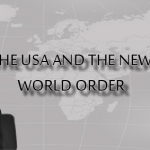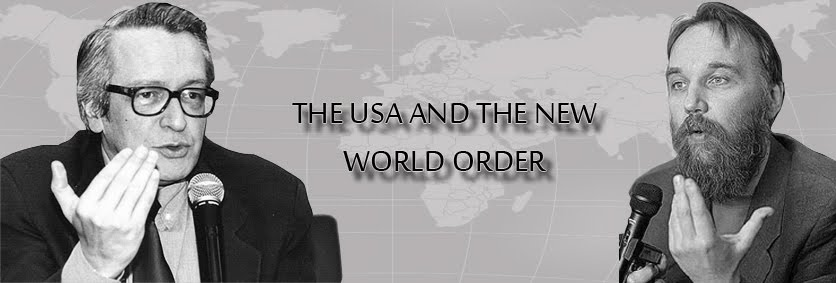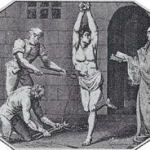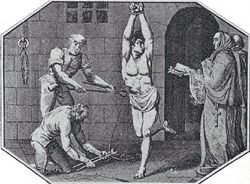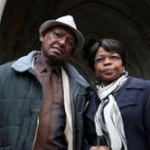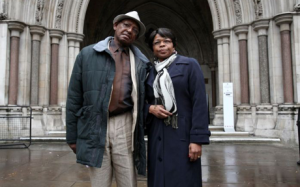
Deprecated: trim(): Passing null to parameter #1 ($string) of type string is deprecated in /home/aoiusa/public_html/wp-content/plugins/sexybookmarks/public.php on line 388
Deprecated: trim(): Passing null to parameter #1 ($string) of type string is deprecated in /home/aoiusa/public_html/wp-content/plugins/sexybookmarks/public.php on line 394
Deprecated: trim(): Passing null to parameter #1 ($string) of type string is deprecated in /home/aoiusa/public_html/wp-content/plugins/sexybookmarks/public.php on line 400
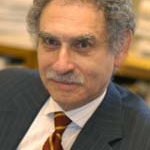 I read this article yesterday in Touchstone Magazine and was glad to find that it is featured this month on their website (I was going to recommend it today). Particularly encouraging is Arkes’ conviction, which I also share, that we can find a way out of our present cultural morass. I’m not a fatalist despite the constant drumbeat that we are doomed (much coming from Orthodox quarters too as it turns out). A fascinating interview that is also good for the soul.
I read this article yesterday in Touchstone Magazine and was glad to find that it is featured this month on their website (I was going to recommend it today). Particularly encouraging is Arkes’ conviction, which I also share, that we can find a way out of our present cultural morass. I’m not a fatalist despite the constant drumbeat that we are doomed (much coming from Orthodox quarters too as it turns out). A fascinating interview that is also good for the soul.

Source: Touchstone Magazine | Marcia Segelstein
Hadley Arkes is the Edward N. Ney Professor in American Institutions at Amherst College and one of the country’s most prominent proponents of natural-law jurisprudence. He is the author of numerous books, including First Things (from which the journal took its name) and Natural Rights and the Right to Choose. His latest is a collection of essays called Constitutional Illusions and Anchoring Truths: The Touchstone of the Natural Law. In an interview for the Amherst College website about the book, Arkes had this to say about natural law: “The person who asks, ‘Can I reach judgments in the law without appealing to natural law?’ is rather like the man who asks, ‘Can I order coffee without using syntax?’”
He has long been involved in the pro-life movement, and is considered the architect of the Born-Alive Infants’ Protection Act of 2002. Born a Jew, he was baptized, confirmed, and received into the Roman Catholic Church on April 24, 2010, in the chapel of the Catholic Information Center in Washington, D.C. In a column written the next day for The Catholic Thing, Arkes described how his journey began. When he first started to consider seriously the issue of abortion, a fellow faculty member at Amherst, Daniel Robinson, showed him that
the Church’s position really depended on a combination of empirical evidence (embryology) woven with moral reasoning. It was natural law reasoning. As Aquinas said, the divine law we know through revelation, but the natural law we know through that reason that was natural for human beings. The Church’s moral position here did not depend on faith or belief. One didn’t have to be Catholic to understand it. And that was precisely the teaching of the Church.
As Arkes began to write about abortion, marriage, and other issues from a natural-law perspective, he acquired a following of readers who believed him to be a Catholic apologist. A Catholic friend said that the question for him was whether he believed in the Church as a truth-telling institution. “And I thought: I do, I really do. When the Church stands contra mundum, against the currents of relativism in the world, my inclination is to think that the Church has it right,” he wrote.
In a letter to those who had attended his reception into the Church, Arkes wrote that some friends had reproached him on the matter of his confidence in the Church. “And they had a point,” he wrote, “because talk about Jesus has not come readily to my lips. But of course, one can’t talk about the Church without talking about him who made it, formed it, planted the Mustard Seed. . . .”
Wanting to know more about this intriguing man and his compelling journey, I asked for an interview. His warmth, humor, optimism, scholarship, and generosity of spirit made for a most pleasant time together. Here is some of our conversation.
Marcia Segelstein (MS): You talk about the Church standing “contra mundum,” and there’s certainly a lot to stand against these days. Why do you believe society has strayed so far from traditional Judeo-Christian values?
Hadley Arkes (HA): The drift away is not something so remarkable or unthinkable. After all, isn’t there a constant drumbeat of complaints by God in the Old Testament about his people drifting away? In the normal laxity of ordinary persons, it’s always easier to fall away from the things that are good and rightful. Remember Mark Twain’s line in Pudd’nhead Wilson’s New Calendar [from Following the Equator] that we have a moral sense and an immoral sense. The moral sense tells us what is good and how to avoid it, and the immoral sense tells us what is bad and how to enjoy it.
It’s no wonder that human beings, faced with a collision between their interests and things that are rightful to do and that demand sacrifice have strong temptations to prefer their own interests. The unfolding logic of modernity is the notion that all passions should be gratified, that all inclinations should be pursued, that all desires stand on the same plane. “All men are created equal” has come to mean in its vulgar notion that we cannot discriminate between the finer desires and the coarser desires, between the more selfish desires and the more generous desires.
MS: How do we change course?
HA: My friend Daniel Robinson would say that what has rescued things in the past is conversion. And if you find conversions in persons, you can find conversions affecting many people, and at a certain point running through the whole country, running through the culture. Richard Neuhaus’s line was, “We can still turn this around.” And I think the possibility of turning it around is always lurking there. I guess that’s why so many people I know, Catholics and others who are involved in the so-called culture wars haven’t given up. It reminds me of Michael Novak’s joke about the pessimist and the optimist. The pessimist says, “Oh, things could never get any worse,” And the optimist says, “Oh, yes they can!”
What may be truly remarkable in the overall sweep of human history, and of our daily experience, is how many examples we see of ordinary people preferring the interests of others to their own. Parents, for example, who are holding things together in order to sustain their children. In my own case I can see the effects on discrete students. You know particular persons who tell you that their own lives were changed. You see this before you and you know it must be possible. I know I sound like the cockeyed optimist in South Pacific. There’s no question there’s been a tendency toward the vulgar, and yet you keep seeing these signs of regeneration, of people turning their lives around, thinking anew.
MS: How has moral relativism come to be so predominant?
HA: I think the erosion of natural law and the tendency toward moral relativism go back to ancient times with ancient skeptics making the argument for relativism. You can see the arguments surfacing in Plato’s Protagoras. In the Anglo-American law, it was getting accelerated from the early part of the twentieth century. It was bound up with historicism and the notion taking hold in Germany that we could know things only within their historical context, i.e., that certain things will be made clear only as history unfolds.
My late professor, Leo Strauss of the University of Chicago, wrote his critical book, Natural Right and History, in 1953. That was mid-century and he was already standing against the currents of relativism. Already they were deeply at work. Here was a country established on the Declaration of Independence—on truths grounded in nature, objective moral truths, self-evident truths—and yet falling into the wave of relativism. Strauss spoke about the effect of German philosophy on America—and here I’m paraphrasing—that it would not be the first time that a country defeated on the battlefield imposed on the victor the yoke of its own thought. Here we defeated the Germans, and yet German philosophy in its worst forms was taking hold in this country.
In the course I teach at Amherst that became the basis for the book First Things, I tell my students the biblical story of God instructing Elijah to journey to Damascus. Ultimately it is Elisha who fulfills this directive, traveling there to tell Hazael that “the Lord has shown me that you are to be king over Syria,” and that the current king, Ben-Hadad, “shall certainly die.” One commentator thought that this story, dating to the sixth century b.c., was a sign of how early the Jews were committed to monotheism. I ask the students what the connection is with moral relativism.
The answer is that a God who could tell a prophet to cross the lines of one jurisdiction to cashier a leader in another place was obviously not one of those local gods known to antiquity. This was evidently a God with universal jurisdiction. After all, I ask, did the same God who authored a universal law of physics author separate morals for Zanzibar and Jersey City? And what were the Ten Commandments? Were they municipal regulations, meant only to govern the immediate environs of Mt. Sinai?
Then I ask how many of them were raised in households that could be called Christian or Jewish or even Islamic. Almost all the hands go up. And yet, how is it that most students arrive at college with the assumptions of moral relativism, of cultural relativism? My question to them is, why do they think that the doctrines of cultural relativism have a firmer hold on them—or have been more deeply absorbed by them—than the logic of that monotheism in which they’ve been raised?
MS: Why do you think that is?
HA: I know there’s been a falling away. If you take a look at the writings of the revolutionary period, particularly the sermons of the period, you find people who are utterly clear on the doctrines of natural rights and natural law. You don’t need revelation in order to understand it. There was a time in this country when preachers, pastors, and ordinary people were remarkably clear on those things and could impart them. It may have something to do with the fact that these people weren’t burdened with a college education!
In class I use the example of Plato’s Meno, where you start feeding questions to the slave boy and pretty soon he’s working out geometry. The message is that the logic of these moral understandings is locked away in our souls. It’s there when people are treated badly and they take offense. They’ll say, “I don’t like it and it’s wrong.” So, I tell my students, so much of all this is getting fed the right questions that allow them to draw out the understandings that are already locked away within them.
MS: So the moral understandings are there, but they’re not acknowledged?
HA: Some of my colleagues who object to natural law and, of course, to religion, will say that God is dead and everything is permitted. Yet they’ll still talk about the man in the gutter who’s broken his own life, and they’ll want to help him. They’ll say that there’s a sanctity to him. This from people who are atheists.
An example I use in my book [Natural Rights and the Right to Choose] came from doing a piece on the Holocaust Museum and coming across a vat filled with shoes of the victims. What came flashing back at that moment were those lines of Justice McLean in the Dred Scott decision when he said, in essence, “You may think that the black man is chattel but he’s a creature made in the impress of his Maker. He is amenable to the laws of God and man and he is destined to an endless existence.” That is, he has a soul that will not decompose when his material existence comes to an end. The Nazis thought that the shoes were the durables. It was the shoes they wanted to keep.
People of the most liberal sympathies cannot give you the same account that McLean was able to give—the wrong of slavery or the wrong of genocide—because McLean would say it’s because these creatures are made in the image of Someone higher. Those colleagues of mine who say that God is dead will say there’s something sacrosanct about the alcoholic in the gutter. But they can’t explain what’s redeeming about him or why there’s something about him that deserves their efforts to reach out and help. And they can’t quite explain that.
The point is that their language, their reflexes, their dispositions on these things all spring from this religious understanding. You might say that religious capital is at work in our culture. But we’ve reached the point where people are no longer much aware of its origins and the source from which it was drawn.
Many liberals will express as much concern over dead Iraqi soldiers as American soldiers. They care about these strangers. So what is their problem with the lives of unborn children in the womb? They’re as human as those strangers in Iraq of whom they know nothing. They are strangers for them here in their own country. They are nothing other than human beings. Their human standing doesn’t depend on their height or weight, so what is it that’s deflecting their judgment here?
MS: In the column you wrote the day after you were received into the Catholic Church, you talked about courage. As a Jew, did it take a unique kind of courage to become a Christian?
HA: I went on to explain in those comments that I did not see myself as abandoning the Jewish people.
MS: But as a Jew, was it harder?
HA: Theologically I don’t think it was. As Michael Novak [his sponsor] said, “When you’re Catholic, you’re at least Jewish.” Everything in the New Testament is predicated on the Old. As part of the Creed, we accept the prophets: “God spoke through the prophets.” It is the God of Abraham, Isaac, and Jacob. I asked my wife how many people sitting in a synagogue in Amherst believe that God made a covenant with Abraham. And she said, “Actually believe it? Probably a third.” And I said that every serious Catholic I know does. So on one level it may not be as difficult as people suppose.
But on the level of family, it is quite difficult. I know that my parents could not have understood this. I loved my grandparents very much and I have a sense that a decision like this would have been very hurtful to them, maybe because they wouldn’t have understood it. For the most part, my family around me has been understanding and sympathetic.
Certain members of the family see it as a defection. And this is really very strange because some scoff at religion and profess to be atheists. How is it that a Jewish atheist is not thought to have left the Jewish people, but the Jewish Catholic has? Here I am affirming the God of Israel and his laws. The Jewish atheist rejects them. So which one of us is leaving the Jewish people? I’m certainly not defecting from the Jewish people and I’m certainly not even defecting from Judaism because I think Judaism is carried over into the Church. I haven’t felt less Jewish being in the Church. I think I learn more about the Jewish traditions every day at Mass.
***
In the column Dr. Arkes wrote for The Catholic Thing the day after being received into the Catholic Church, he recalled an encounter he’d had the previous autumn with Fr. Arne Panula of the Catholic Information Center in Washington, D.C., whom he’d met a few years earlier:
In a bantering way, Fr. Arne confronted me: “You, the most notable figure at the threshold, never quite crossing it.” (Never actually coming into the Church.) “What’s holding you back?” I dipped into the repertoire of Bert Lahr from the Wizard of Oz: “C-c-c courage! It’s what puts the ‘ape’ in ‘apricot’; it’s what I haven’t got.”
A month later, as he put it, “the decision was finally made.”
Like those revolutionary-era preachers he so admires, Dr. Arkes’s thinking is utterly clear, yet full of Christian hope, optimism, and perhaps most of all, courage.
